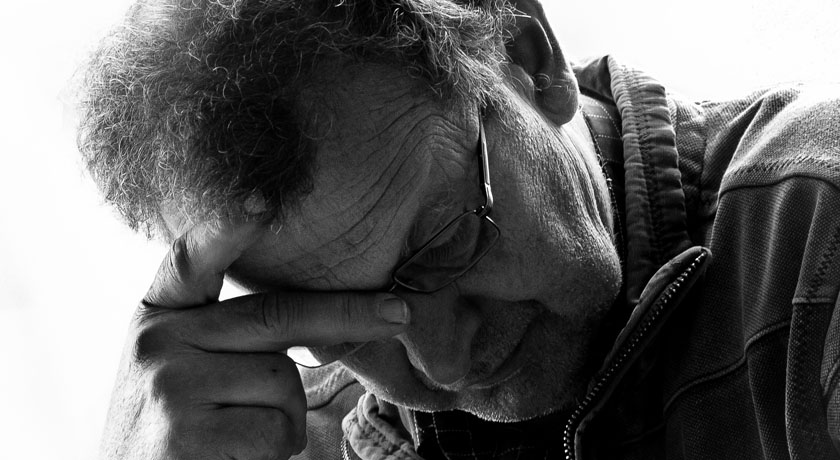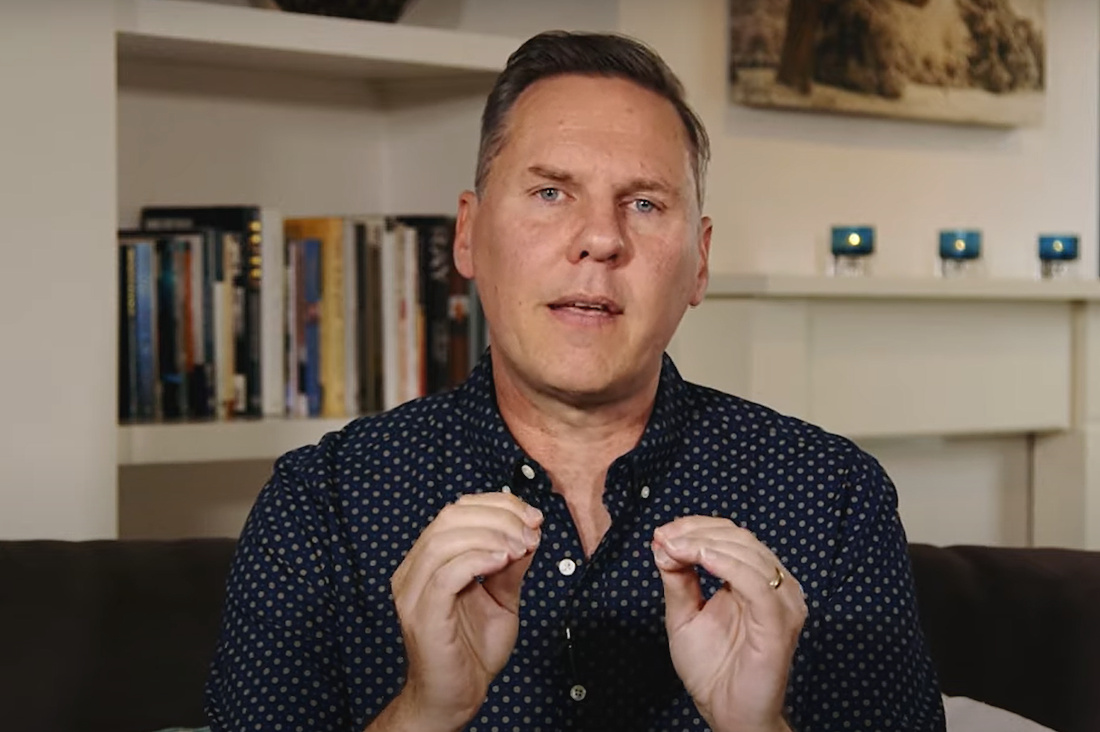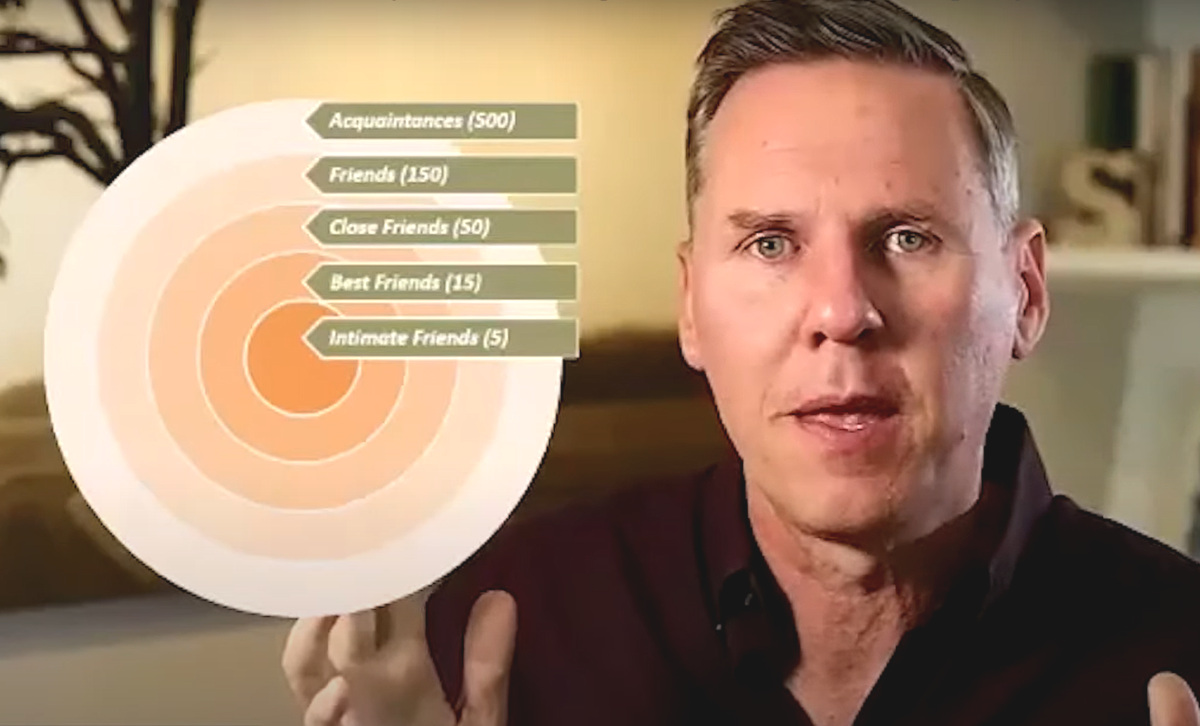To Help a Friend with Depression, Here’s the Best Thing You Can Do
Picture by Helga Weber, Flickr, CC BY-NC 2.0
According to the World Health Organisation, one in four of us will be affected by a mental health problem at some point. Mental illness can strike anyone irrespective of health, education or status, and one of the biggest problems for treatment is the stigma associated with it. For some reason, we can empathise with those who have cancer, but ostracise those with a mental illness. It doesn’t need to be the case.
When mental health became the topic on BBC Radio 2’s Pause for Thought segment, I consulted my brilliant Facebook community to prepare. They shared deeply and with insight on just how we can be more accepting of those who suffer this way. And the starting point? See people as bigger than their illness. Everything else flows from that.
Listen Now
Podcast: Subscribe in iTunes or Stitcher | Right-click to download | Other episodes
‘I Am Not My Illness’

Photo: Neil Moralee, flickr, CC BY-NC-ND 2.0
Like most people, I’ve had my down days and dark seasons. But they’ve never been deep enough or dark enough to require medication. So in preparation for this week’s Pause for Thought theme, I asked some friends who had reached those depths about their experience. I learnt some important lessons.
I learnt that people who wrestle with mental health don’t want to be defined by their illness. The depression, anxiety or panic attacks they experience are a part of their life, not the whole of it. They are first and foremost mothers, fathers, sisters, brothers; they’re teachers, bankers, builders, artists; they have gifts and talents, hopes and dreams, and to define them by their illness alone is like defining a sports car by its flat tyre—it misses what is most true about them.
This has been an important lesson because the way we see someone changes how we relate to them. If we only see a person’s illness, we can be tempted to become pseudo-social workers, trying to fix them with our good advice, or our cheer-up talks, or with the wonder cure that helped our neighbour’s hairdresser’s friend. Either that, or we simply avoid them for fear of not knowing what to say.
The people I spoke with told me they didn’t need any would-be social workers in their lives. They needed someone to drop in with a meal, or with some flowers, or to take them out for coffee, or just to chat about everyday things. In short, they needed people who saw them, not their illness. They needed friends.
The Help Only A True Friend Can Give

Picture: open-arms, Flickr, CC-BY NC-ND.20
One of the most beautiful stories I heard this week was about a woman I’ll call Erica. Erica was in the depths—deeper and darker than most of us will ever reach. But she had a friend named Emily. When Erica needed to cry, Emily didn’t stop the tears. When Erica needed to scream, Emily didn’t quiet her down. When Erica needed hope, Emily had some encouragement ready. Emily didn’t play social worker, she was a friend.
At her darkest moment, Erica lay curled up in an armchair one afternoon. She’d lost hope, and Emily had no words left. And so Emily did what only she could do. She climbed on to that armchair and gave her friend a hug. Erica drifted off to sleep. Then Emily did too. And that’s how they stayed for the next two hours—two friends embracing in silence, having a nap together. Seven years later, Erica remembers that cuddle more than anything else. It’s something a social worker could never have given her.
One person told me this week, “Yes, I have Bipolar Disorder. But I also have a great toy collection. Let’s talk about that.” Those who wrestle with mental health are bigger than their illness. And as it turns out, the greatest gift we can give them is to celebrate that.
Bonus Video (and it’s Hilarious)
Being a friend to someone battling mental illness requires being thoughtful about what we say. In this video Rachel Griffin, who has walked the road of mental illness herself, takes on different personas to show how our less-than-thoughtful words and attitudes can sound. From the ditsy friend to the New Age guru to the pious Christian, this is both an hilarious and educational way of discovering what not to say to someone wrestling with mental health.
Learn More
- Livability’s Mental Health Access Pack helps churches support those with mental illness
- Premier Mind and Soul has lost of resources
- Katherine Welby Roberts writes vulnerably about mental health issues
- How To Be Happy (by a moderate depressive) by Ruth Mawhinney has practical suggestions for pursuing happiness
Talk to Me
What would you like others to know about helping those with a mental illness? Leave a comment below now or call me using the ‘Send Voicemail’ button on the right. Please also rate and share this podcast on iTunes to help others discover it!
Subscribe
Subscribe to the More Than This podcast and never miss an episode.
| |
Subscribe in iTunes |
| |
Subscribe on your iPad or smartphone |
| |
Subscribe in Stitcher |






AndrewH
Hi Sheridan,
Thanks for this. I’ve also suffered from depression. It’s not nice.
I recently wrote a blog post on my experiences. Here’s an excerpt with some top tips (from my experience) of how to be a friend and support to those with acute or chronic mental illness:
1. Let them know you’re ‘with them’, whether that means visiting, writing, texting etc. Perhaps create a rota with your friends/family to visit them regularly.
2. Don’t try and overload them with what you think are the answers to their problems, or ply them with self-help books. Usually it’s best to just sit with them and love them and listen.
3. Do some learning/reading up on what they’ve been diagnosed with to better inform your attitude and actions towards them.
4. If you are a person of faith, pray for them. Pray that they will find strength and hope in their darkness, and that God will protect them in their surroundings (whether in hospital or at home).
Every blessing,
Andrew.
Sheridan Voysey
Those are valuable points, Andrew – thank you. And I hope you’re in a stronger place personally now too.
Andrew
Thanks, Sheridan. Yes, I am. CBT, good church community and prayer helped tremendously. God is good. 🙂
Fiona
Hey Sheridan, great to see you bringing attention to these
important issues. One of the best things I have seen family and friends do for
their loved ones experiencing mental illness is encouraging them to seek professional
help. Doctors, psychologists and other mental health clinicians train for many
years to be in a position to understand and treat these illnesses. A word from
a loved one or work colleague which helps to reduce the stigma of seeking help can
make a very positive difference. Not everyone is going to be comfortable to
climb up on the couch and give a hug (nor would it be appropriate for every friend/acquaintance
to do so) but we can all educate ourselves just a little to know where we can
direct people for professional assistance. In Australia there are many options for
gathering information and accessing support (Your GP, Headspace, Black Dog,
Beyond Blue, Lifeline…to name just a few).
Sheridan Voysey
Excellent advice, Fiona. Thanks for adding it. An important task caring friends and family can do.